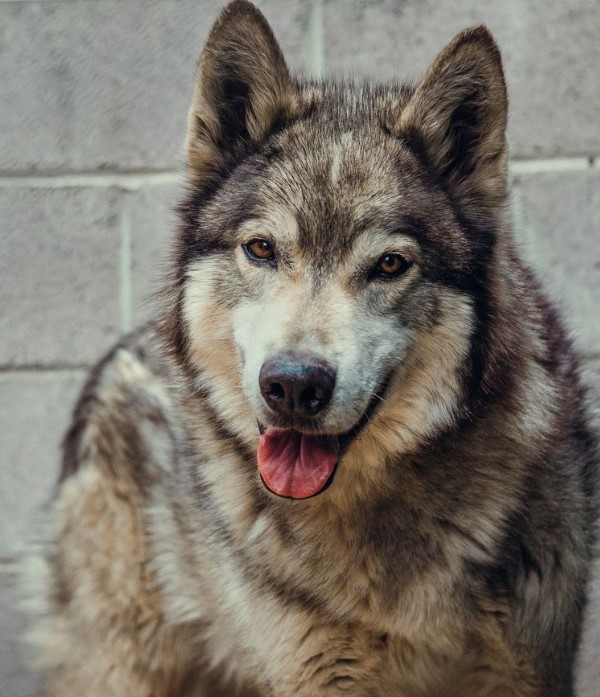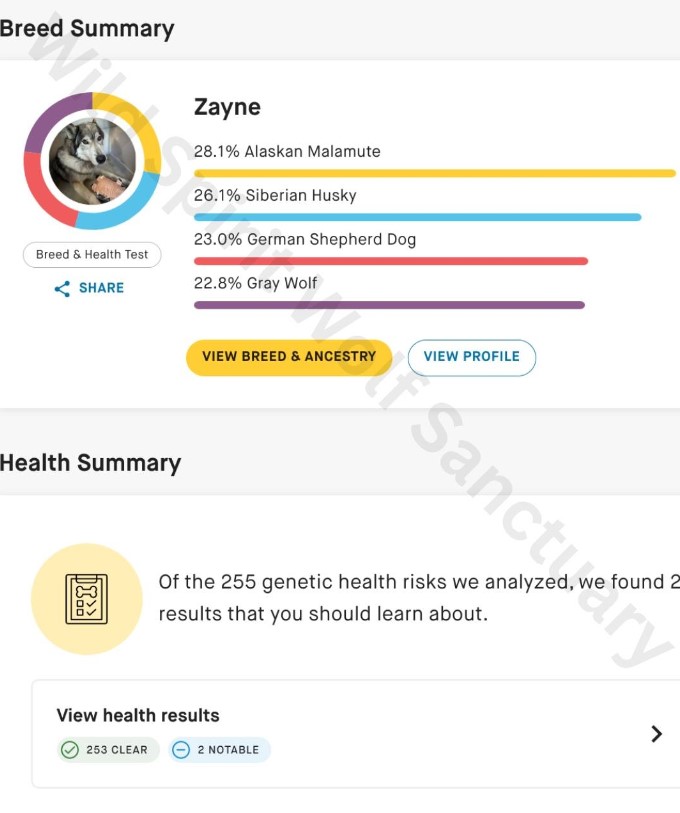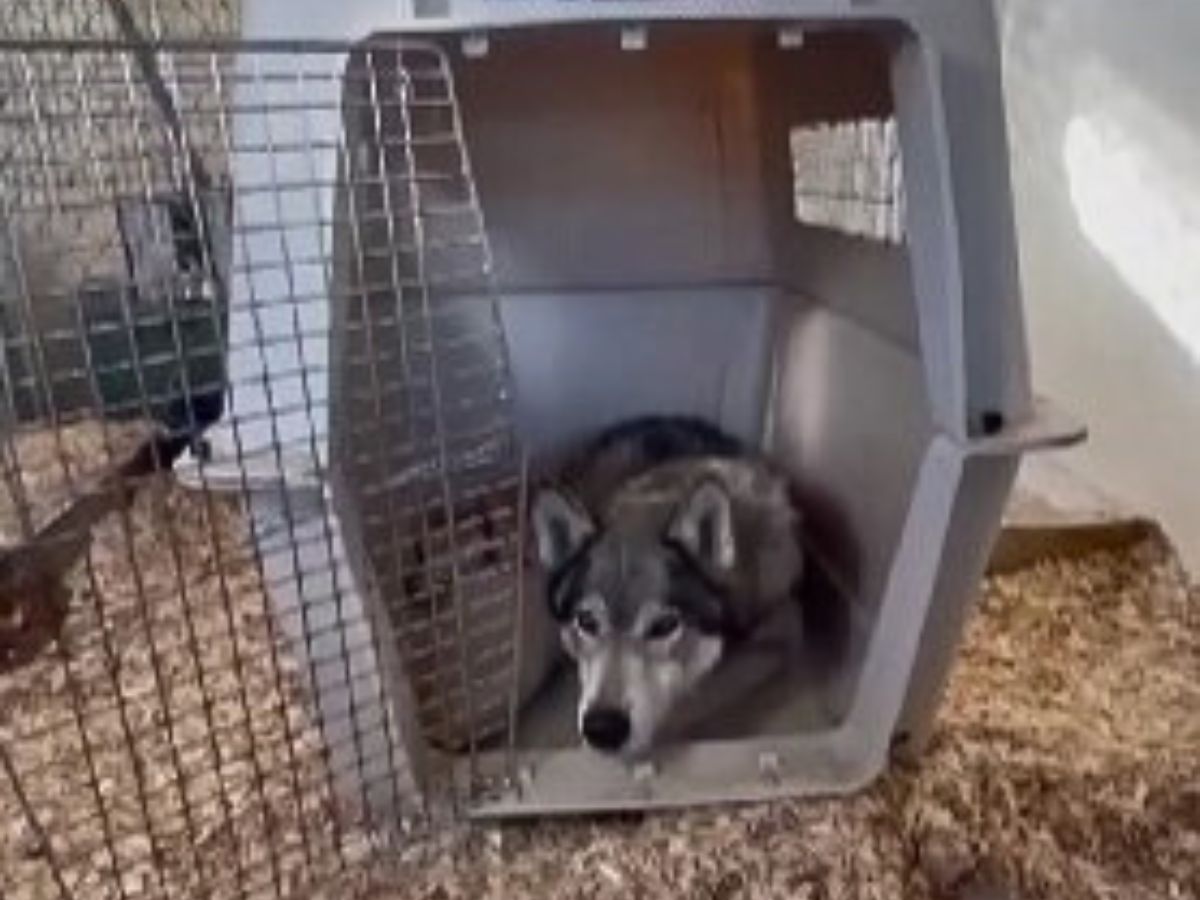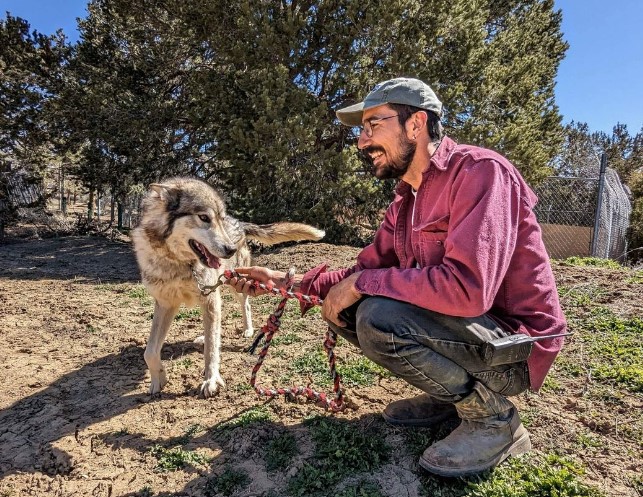The ancestors of dogs are wolves, and most of us know that. Although many people respect animals such as wolves, most like to show it at a distance, even when it comes to a dog with only a small amount of wolf DNA.
Such thinking has created stereotypes about wolfdogs, and these stereotypes have even spilled over into laws in some places.
And, the laws must be respected… no matter what fate they bring to these often benign and innocent creatures.
The DNA Test Revealed Everything

In 2022, one unusual guest came to the shelter of the McKinley County Humane Society, in Gallup, New Mexico.
Although it was a dog, the staff of the shelter noticed that it was somewhat different. Zayne, as they called him, had certain physical and behavioral traits that led them to believe he might actually be a wolfdog.
That’s why they decided to call an expert, Katie Forbis, an employee of the Wild Spirit Wolf Sanctuary in New Mexico.
“While he appeared different than a normal husky mix, he did not have any actual appreciable wolf phenotypes or physical traits—meaning he could have just as easily been some sort of northern breed mix,” Katie said in an interview for Newsweek.
That’s why the best solution was to do a DNA test, which they did. Testing had shown that this unusual dog did indeed have 22% wolf DNA, placing him in the low-content group of wolfdogs.

Unfortunately, this fact brought with it certain problems…
The Law Made Adoption Impossible

Although the percentage of wolf DNA is very small, it still places this creature in the wolfdog category.
The law in some states, counties, and cities in the U.S., including McKinley County, clearly says that it is illegal to own a wolfdog.
“Wolfdogs face a similar stigma as the Pitbull breed, though on a much more visceral and controversial level,” Forbis said. “Wolfdogs of any content level are completely illegal in McKinley County. If someone has a wolfdog in an illegal area, then it can lead to seizure and euthanasia for the animal if they are found out.”
That’s why people from the sanctuary immediately went to action to save Zayne from a tragic fate and find him the home he deserves.
Unfortunately, despite their best attempts, most sanctuaries were either full or simply not interested in taking in a low-content wolfdog.
However, they could not so easily let this wolfdog go to the mercy of the cruel law. That’s why they decided, despite the fact that their capacities were full as well, to take him in.
“We couldn’t say no to an animal less than two hours away who needed us,” said Forbis.
Sanctuary Supporters Fell In Love With Him

The sanctuary soon posted on their official Facebook profile that after going to the vet, Zayne is on his way to his new home.
“Then, of course, we stopped on the way home to get him a new toy since he’s been having a “ruff” week,” they added.
Sadly, though, shortly after being adopted, he was diagnosed with degenerative myelopathy, an inherited neurologic disease. It is a disease affecting the spinal cord, resulting in slowly progressive hind limb weakness and paralysis.
Despite everything, the people from the sanctuary had no intention of giving up on this beautiful boy. They were taking Zayne on regular walks, and spent plenty of time playing with him to maintain his muscle mass and help extend his quality of life.
There were also a lot of updates about him on Facebook, so many people, his supporters, fell in love with him.
The highlight of everything was the surprise that these same people prepared for him.
The video below shows how much this really means to this “slightly different” dog.
This wolfdog showed us that regardless of stereotypes, we all have the right to seek the path to happiness no matter how difficult it may be.
